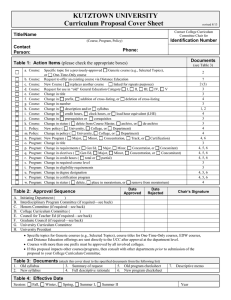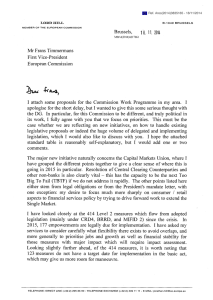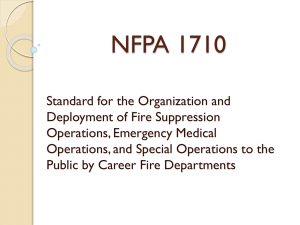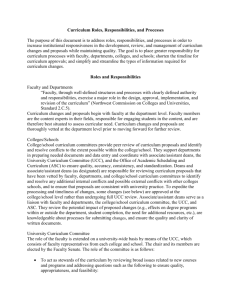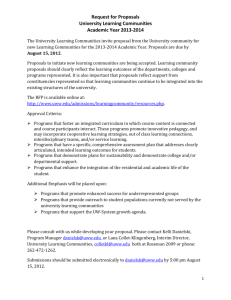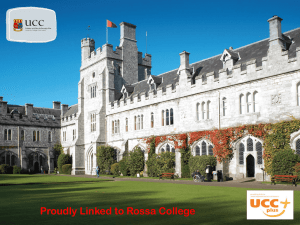Proposal to Create a Beyond the Classroom
advertisement
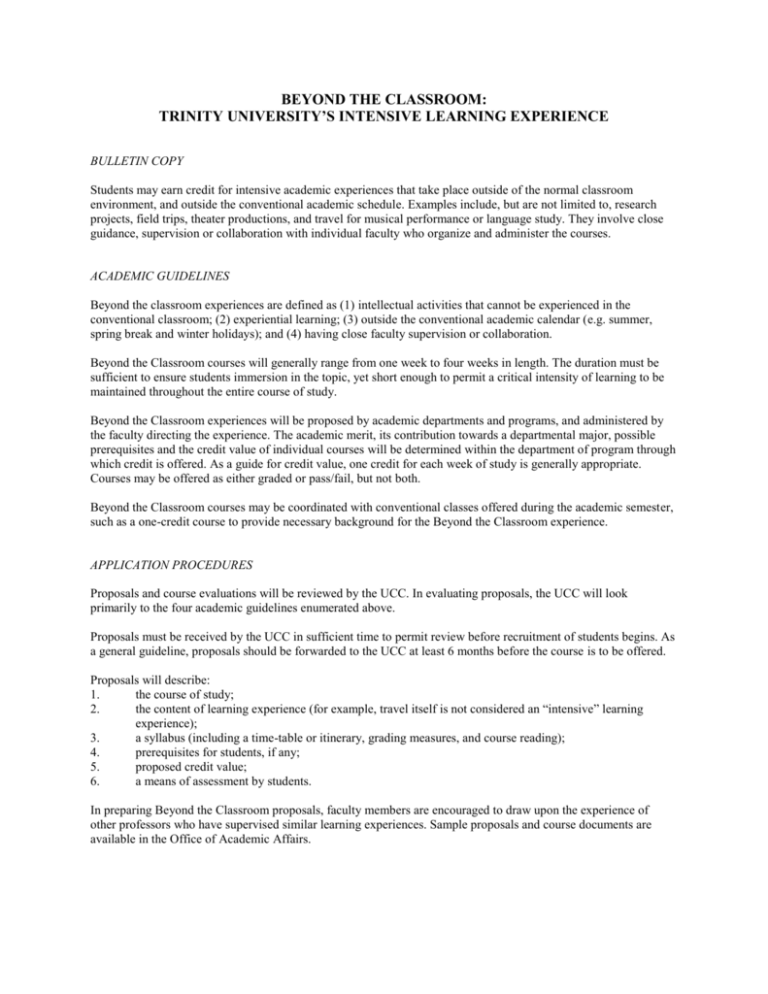
BEYOND THE CLASSROOM: TRINITY UNIVERSITY’S INTENSIVE LEARNING EXPERIENCE BULLETIN COPY Students may earn credit for intensive academic experiences that take place outside of the normal classroom environment, and outside the conventional academic schedule. Examples include, but are not limited to, research projects, field trips, theater productions, and travel for musical performance or language study. They involve close guidance, supervision or collaboration with individual faculty who organize and administer the courses. ACADEMIC GUIDELINES Beyond the classroom experiences are defined as (1) intellectual activities that cannot be experienced in the conventional classroom; (2) experiential learning; (3) outside the conventional academic calendar (e.g. summer, spring break and winter holidays); and (4) having close faculty supervision or collaboration. Beyond the Classroom courses will generally range from one week to four weeks in length. The duration must be sufficient to ensure students immersion in the topic, yet short enough to permit a critical intensity of learning to be maintained throughout the entire course of study. Beyond the Classroom experiences will be proposed by academic departments and programs, and administered by the faculty directing the experience. The academic merit, its contribution towards a departmental major, possible prerequisites and the credit value of individual courses will be determined within the department of program through which credit is offered. As a guide for credit value, one credit for each week of study is generally appropriate. Courses may be offered as either graded or pass/fail, but not both. Beyond the Classroom courses may be coordinated with conventional classes offered during the academic semester, such as a one-credit course to provide necessary background for the Beyond the Classroom experience. APPLICATION PROCEDURES Proposals and course evaluations will be reviewed by the UCC. In evaluating proposals, the UCC will look primarily to the four academic guidelines enumerated above. Proposals must be received by the UCC in sufficient time to permit review before recruitment of students begins. As a general guideline, proposals should be forwarded to the UCC at least 6 months before the course is to be offered. Proposals will describe: 1. the course of study; 2. the content of learning experience (for example, travel itself is not considered an “intensive” learning experience); 3. a syllabus (including a time-table or itinerary, grading measures, and course reading); 4. prerequisites for students, if any; 5. proposed credit value; 6. a means of assessment by students. In preparing Beyond the Classroom proposals, faculty members are encouraged to draw upon the experience of other professors who have supervised similar learning experiences. Sample proposals and course documents are available in the Office of Academic Affairs. After a Beyond the Classroom proposal has been approved by the UCC, the proposing faculty member will work closely with the Office of Academic Affairs to specify all relevant budgetary and administrative details. These details include: 1. the minimum number of students needed to offer the course; 2. the final date of application to and withdrawal from course; 3. if travel is involved, conformity with ACS “Guidelines for Study Abroad” (including, for examples, legal waivers, parental notification releases, recognition of risks, and regulations and consequences for student behavior); 4. a budget including all expected expenditures by the University (e.g., research, travel, lodging, meals, incidental expenses and faculty salary) and expected costs to students (tuition and fees). The Vice President for Academic Affairs has the final authority to approve or reject the budget for a proposed Beyond the Classroom experience. PLEASE NOTE: Participating faculty members will submit a written report within 60 days of the end of the learning experience, describing in detail the value and benefit of the experience to the participating students.
